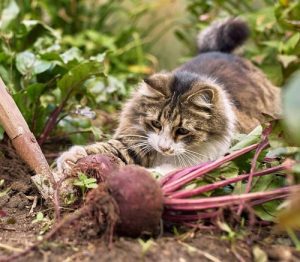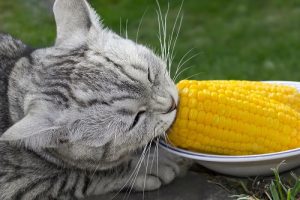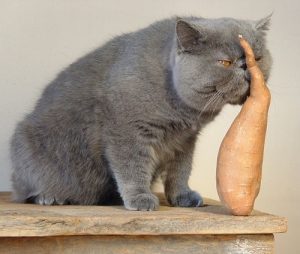Can cats join the veggie bandwagon? Find out if your kitty can add some extra nutrients to their diet in our article – Can Cats Eat Kale.
It is a well-known fact that cats require a diet high in animal-based protein. However, that does not necessarily mean they can not enjoy some occasional plant-based treats, such as kale. In this article, we will explore the question of – ‘Can Cats Eat Kale?’, its potential benefits and risks, and how to prepare and feed it to your feline friend.
Can Cats Eat Seaweed? Find out here
What Is Kale?

Kale is the king of greens – crunchy, nutritious, and oh-so-delicious! It is a nutrient-packed powerhouse loaded with vitamins, minerals, and antioxidants. It can add flavor, texture, and nutrition to just about anything. It goes along with various dishes like a salad, a stir-fry, a soup, or a smoothie.
So if you are looking for a superfood to add to your diet, look no further than the superhero of vegetables – Kale!
Can Cats Eat Kale?
While we, as humans, can enjoy the innumerable uses and benefits of kale, we are here to discuss the same about our kitties.
The answer to the question of the hour is yes and no.
Just like it is good for us, kale can also be good for felines if fed in moderation. Remember, anything in excess is bad, especially when it comes to your teeny-tiny kittens.
Is Kale Toxic For Cats?
So, No, kale is not toxic for cats. In fact, it can be a healthy part of a balanced diet for cats.
Cats are carnivores and require meat-based food. Kale can be a part of the cat diet but should not be a significant component. Too much of this leafy vegetable can lead to digestive issues in cats and should be avoided.
If you want to give your cat kale, it is important to consult your veterinarian first to ensure that it is the right dietary choice for your cat.
Does Kale Contain Any Nutritional Value For Cats?
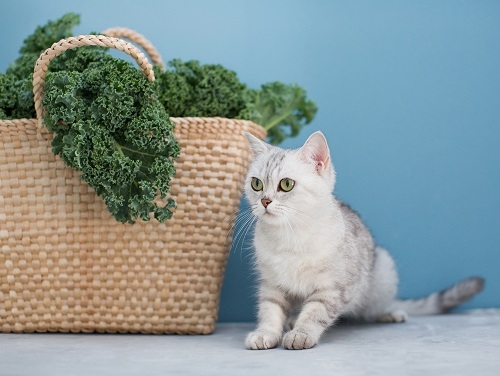
While cats do not need to consume kale to stay healthy, it can provide them with some nutritional benefits.
Kale contains vitamins A, C, and K and minerals such as calcium, phosphorus, and potassium. It also contains small amounts of dietary fiber and antioxidants that can help to improve digestive health and reduce inflammation. The amino acid in kale helps cats with a healthy heart and eye function.
How To Feed Kale To Cats?
- Cats can eat small amounts of cooked kale as an occasional treat, but it should make up at most 10% of their diet.
- When feeding kale to cats, it should be cooked and served in small pieces so that it is easy to eat. It should be washed well to remove any chemicals or pesticides that may have been used during its production.
- Another way to feed kale to felines is to add some kale puree to their cat food or use finely chopped kale as a garnish.
- Be sure to introduce kale slowly, as sudden dietary changes can cause stomach upset. Also, monitor your cat’s reaction to the food.
Can Cats Eat Kale? A Few Concerns.
- Kale should be cooked before feeding it to cats, as it is too tough to digest in its raw form.
- Ensure that no additives, like butter, oil, or garlic, are added to the kale before feeding it to cats.
- Kale should be served in small amounts, as too much can lead to an upset stomach.
- Check with a veterinarian before feeding kale to cats, as it may not be suitable for cats with certain health conditions.
Can Cats Eat Kale Chips?
While cats can technically eat kale chips, it is not recommended as they are not a natural part of a cat’s diet and can cause gastrointestinal problems. Kale chips often contain ingredients such as salt, oil, and other seasonings and spices, which can harm cats if consumed in large amounts. Additionally, cats are obligate carnivores and do not need to eat vegetables or their by-products to maintain good health.
Can Cats Eat Kale? Something Important!
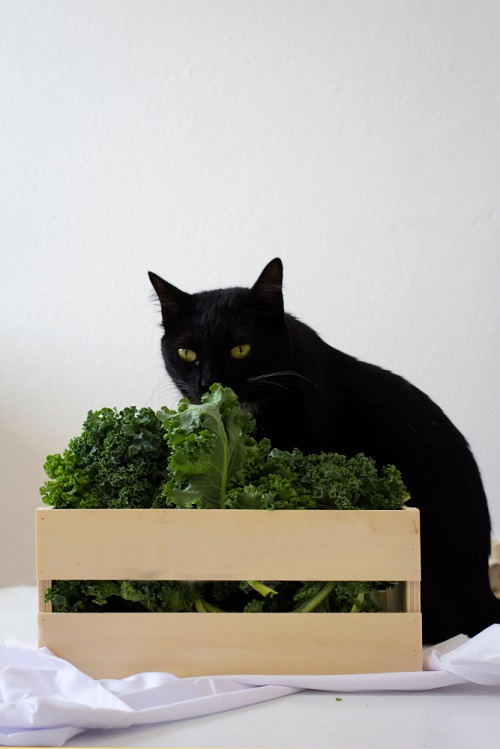
- Kale contains substances called goitrogens which can interfere with thyroid function and cause enlargement of the thyroid gland in cats.
- Kale contains a large amount of oxalic acid, which can cause kidney stones and other health problems in cats.
- Kale is high in fiber and can cause digestive issues such as bloating and diarrhea if fed in large quantities.
- Kale is also high in calcium, which can lead to urinary crystals and stones in cats.
Can Cats Eat Kale? Quick Takeaways!
- Even though kale is safe for cats to eat, it is not recommended to be fed to them in large amounts.
- Kale should only take up 10% of a feline’s diet at maximum.
- You can feed cooked kale, with no added ingredients, to your cats.
- Monitor your pet’s reaction to kale, and keep an eye on any unusual symptoms.

